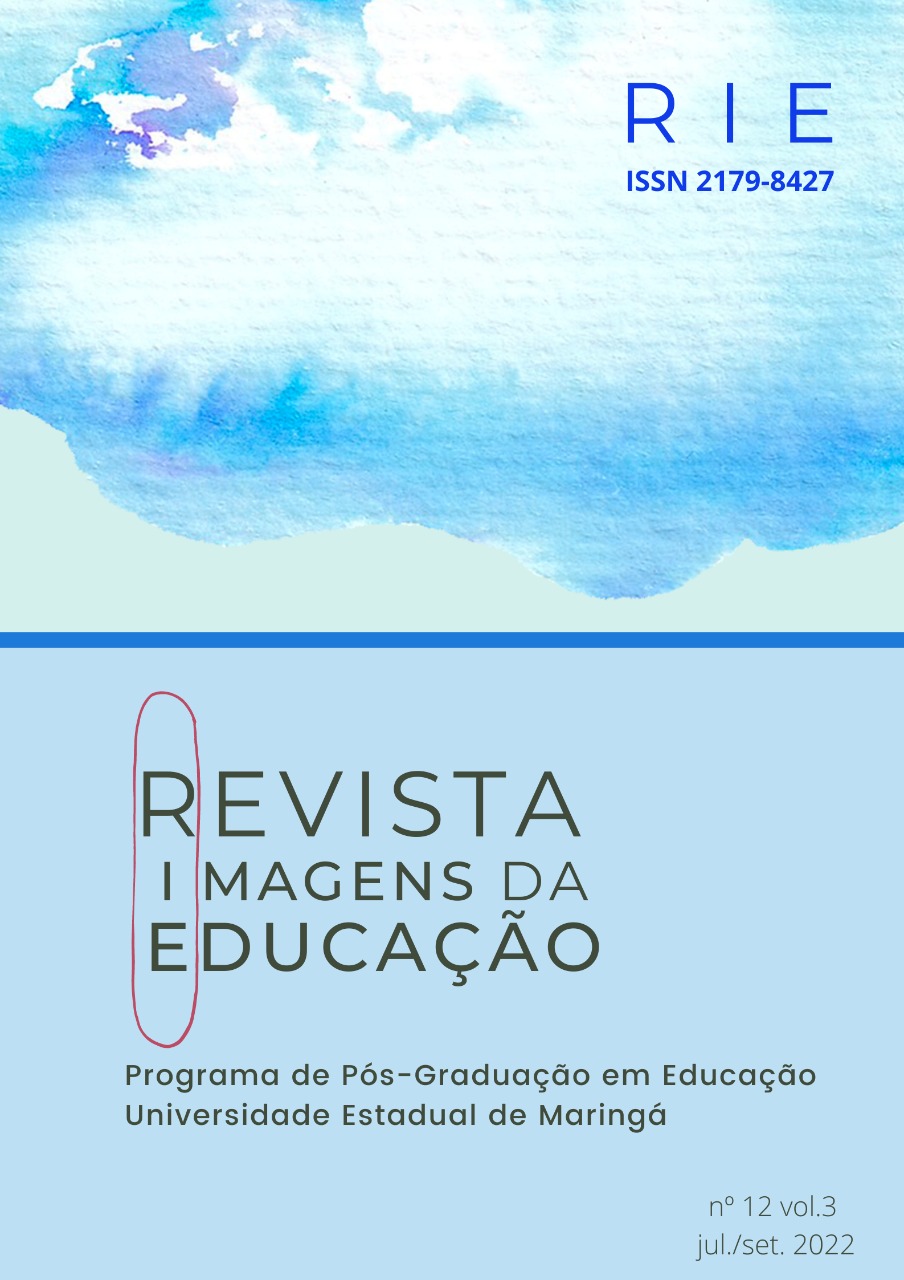TUTOR IN ACTION
ANALYSIS OF FEEDBACKS TO REFLECTIVE DIARIES IN UFSCAR'S HYBRID MENTORING PROGRAM
Abstract
The theme of this study is: feedbacks in teacher education. In this sense, the scope of the work is to analyze the feedbacks of a tutor to the reflective diary of a mentor in Early Childhood Education from UFSCar's Hybrid Mentoring Program (HMP) over a period of written interactions (2017-2018). The research developed has a qualitative and exploratory approach. Data were analyzed based on the theoretical assumptions of content analysis. The results suggest that the tutor offers feedback that helps the mentor to perceive evidence of their learning; encourage to reflect on the practice of mentoring; contribute to the mentor's perception of the construction of their identity; collaborate with the process of interaction and approximation, as well as encourage the creation of bonds between mentor and beginning teacher; they help to indicate paths and reflections for solving difficulties and praise advances in the mentoring development process.
Downloads
References
Bardin, Laurence. (2011). Análise de conteúdo. São Paulo: Edições 70.
Campos, Claudinei José Gomes. (2004). Método de análise de conteúdo: ferramenta para a análise de dados qualitativos no campo da saúde. Revista Brasileira de Enfermagem. Brasília, v. 57, n. 5, p. 611-614. doi.org/10.1590/S0034-71672004000500019.
Cofferri, Fernanda Fátima., & Novello, Tanise Paula. (2020). Feedback de Tutores: contribuições para a formação de estudantes na educação superior a distância. EmRede, v. 7, n. 1, p. 69-80.
Cole, Ardra, & Knowles, Gary. (1995). Teacher development partnership research: A focus on methods and issues. American Educational Research Journal, 30, 473-495.
Flores, Maria Assunção. (2015) Formação docente e identidade profissional: tensões e (des) continuidades. Educação: Porto Alegre, 2015.
Franco, Maria Laura Puglisi Barbosa. (2005). Análise de conteúdo. 2 ed. Brasília: Livro Editora.
Gil, Antônio Carlos. (2008). Métodos e técnicas de pesquisa social. Ed 6. São Paulo: Atlas.
Hatton, Neville., & Smith, David. (1995). Reflection in teacher education: toward definition and implementation. Teaching and Teacher Education, v. 11, n. 1, p. 33-49.
Huberman, Michael. (1995). O ciclo de vida profissional dos professores. In: NÓVOA, A. (Org.). Vidas de professores. 2. ed. Portugal: Porto Editora, p. 31-61.
Lima, Emília Freitas De. Corsi, Adriana Maria, Mariano, André Luis Sena, Pizzo, Silvia Vilhena, Rocha Gisele Antunes, & Silveira, Maria De Fátima Lopes Da. (2007). Sobrevivendo ao início da carreira docente e permanecendo nela. Como? Por quê? O que dizem alguns estudos. Educação & Linguagem • Ano 10 • Nº 15 • 138-160
Loughran, John. (2002). Effective reflective practice in search of meaning in learning about teaching. Journal of Teacher Education, Vol. 53, No. 1, 33-43.
Marcelo, Carlos. (1999). Formação de professores: para uma mudança educativa. 1. ed. Portugal: Porto Editora, 271 p.
Marcelo, Carlos. (2009). Desenvolvimento Profissional: passado e futuro. Sísifo – Revista das Ciências da Educação, n. 08, p. 7-22.
Mariano, André Luiz Sena. (2012). Aprendizagem da docência no início da carreira: qual política? Quais problemas? Revista Exitus, v. 2, p. 79-94.
Nóvoa, Antonio. (2006). Desafios do trabalho do professor no mundo contemporâneo. Nada substitui o bom professor. Palestra proferida no Sindicato dos Professores de São Paulo, São Paulo. Disponível em:
Reali, Aline Maria De Medeiros Rodrigues, Tancredi, Regina Maria, Pucinneli, & Mizukami, Maria Da Graça Nicolleti. (2008). Programa de mentoria online: espaço para o desenvolvimento profissional de professoras iniciantes e experientes. Educação e Pesquisa, São Paulo, v. 34, n.1, p. 77-95.
Santos, Fernanda Marsaro dos. (2012). Análise de conteúdo: a visão de Laurence Bardin. Resenha de: [BARDIN, Laurence. Análise de conteúdo. São Paulo: Edições 70, 2011, 229 p.] Revista Eletrônica de Educação. São Carlos, SP: UFSCar, v.6, no. 1, p.383-387.
Souza, Ana Paula Gestoso, Carneiro, F. R, Perez, M. S, Oliveira, E.R, Reali, A. M. M. R, & Oliveira, R. M. M. A. (2012). A escrita de diários na formação docente. Educ. rev., Belo Horizonte, v. 28, n. 1, p. 181-210.
Timperley, Helen. (2015). Professional Conversations and Improvement-Focused Feedback: A Review of the Research Literature and the Impact on Practice and Student Outcomes, prepared for the Australian Institute of Teaching and School Leadership, AITSL.
Tonna, Michelle Attard, Bjerkholt, Eva, & Holland, Eimear. vol.6 No.3. (2017). Teacher mentoring and the reflective practitioner approach”, International Journal of Mentoring and Coaching in Education. 210-227 p.
Vaillant, Denise; Marcelo, Carlos. (2012.) Ensinando a ensinar: as quatro etapas de uma aprendizagem. 1. ed. Curitiba: Editora: UTFPR. 241 p.
Vaughan, Norman. (2010). A blended community of inquiry approach: Linking student engagement and course redesign. The Internet and Higher Education.
Veenman, Simon. (1998). El proceso de llegar a ser profesor: un análisis de la formación inicial. In: VILLA, A. Perspectivas y problemas de la función docente.
Zeichner, Kenneth. (2010). Repensando as conexões entre a formação na universidade e as experiências de campo na formação de professores em faculdades e universidade. Educação, v. 35, n. 3, p. 479-504.
Copyright (c) 2022 Imagens da Educação

This work is licensed under a Creative Commons Attribution-NonCommercial-NoDerivatives 4.0 International License.
DECLARATION OF ORIGINALITY AND CESSATION OF COPYRIGHT
I Declare that current article is original and has not been submitted for publication, in part or in whole, to any other national or international journal. I also declare that once published in the Imagens da Educação, a publication of the IES (UEM, UEL, UFSM, Univali, Unioeste and UEPG), it will not be submitted by me or by any co-author to any other journal. In my name and in the name of co-authors, I shall cede the copyright of the above mentioned article to the Universidade Estadual de Maringá and I declare that I know that the non-observance of this norm may make me liable for the penalties contemplated in the Law for the Protection of Authors' Rights (Act 9609 of the 19th February 1998).















1.png)

